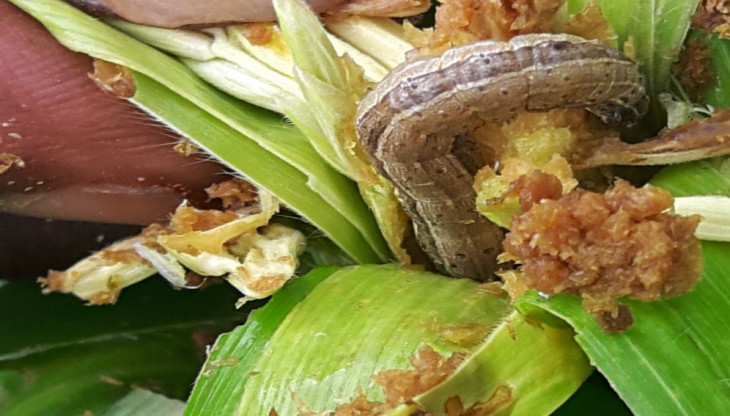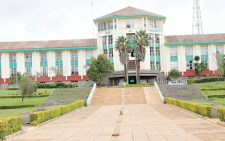Armyworms spoil party for Nyanza crop farmers

Kisumu and Homa Bay counties are counting losses after their farms were invaded by armyworms.
The worms, which have left a trail of destruction on farmlands, are threatening food security in the affected areas.
Farmers are concerned that because of the invasion, they are likely to record low yields this season.
The pests have destroyed food crops including maize and sorghum.
County agricultural officers said farmers in Nyando, Nyakach, Muhoroni and parts of Seme have been affected by the invasion.
Charles Odero, a farmer in Muhoroni, says the pests had destroyed his maize crop despite applying pesticides.
“The armyworm infestation seems severe on many farms here. With the help of county agricultural officers, we have sprayed the maize fields but the pests are still there,” said Odero.
Similar destruction has been reported by farmers in Homa Bay County.
More than 9,884 acres of farms with crops are reported to have been affected across the county.
A spot check by People Daily in Rangwe and Rachuonyo South sub-counties established that several farms have been invaded.
Beatrice Juma and Angelina Dwalo, who are farmers in Gul Kagembe village, Rangwe sub-county, said the pests have damaged and stripped their farms bare.
Nappier grass
Juma said her maize and sorghum crops grown on seven acres were affected.
“The worms have caused a major setback and loss to me. I might not harvest anything because the crops have been completely destroyed,” said Juma.
Dwalo said they are likely to experience serious food scarcity if no immediate solution is found to eliminate the pests.
“Most farms are bare after the armyworms ate the crops. We ask the government to intervene in helping affected farmers to recover from the losses,” she said.
Farmers Dorine Omayi and John Mose of Kobala village said the worms destroyed nappier grass for their cattle.
Kisumu Agriculture Chief Officer Paul Omanga said the county had received pesticides from the national government.
“We are ready to reduce the damage and prevent the entry of worms in areas that are not yet affected and vulnerable,” Omanga said during the distribution of the pesticides and protective equipment.
Homa Bay Director of Agriculture Charles Nyayiera said the department had received complaints from farmers in more than five sub-counties.
He asked extension officers in the county to take stock and promptly report affected areas for urgent intervention.
“The situation can be contained if stakeholders work together,” Nyariera said.











